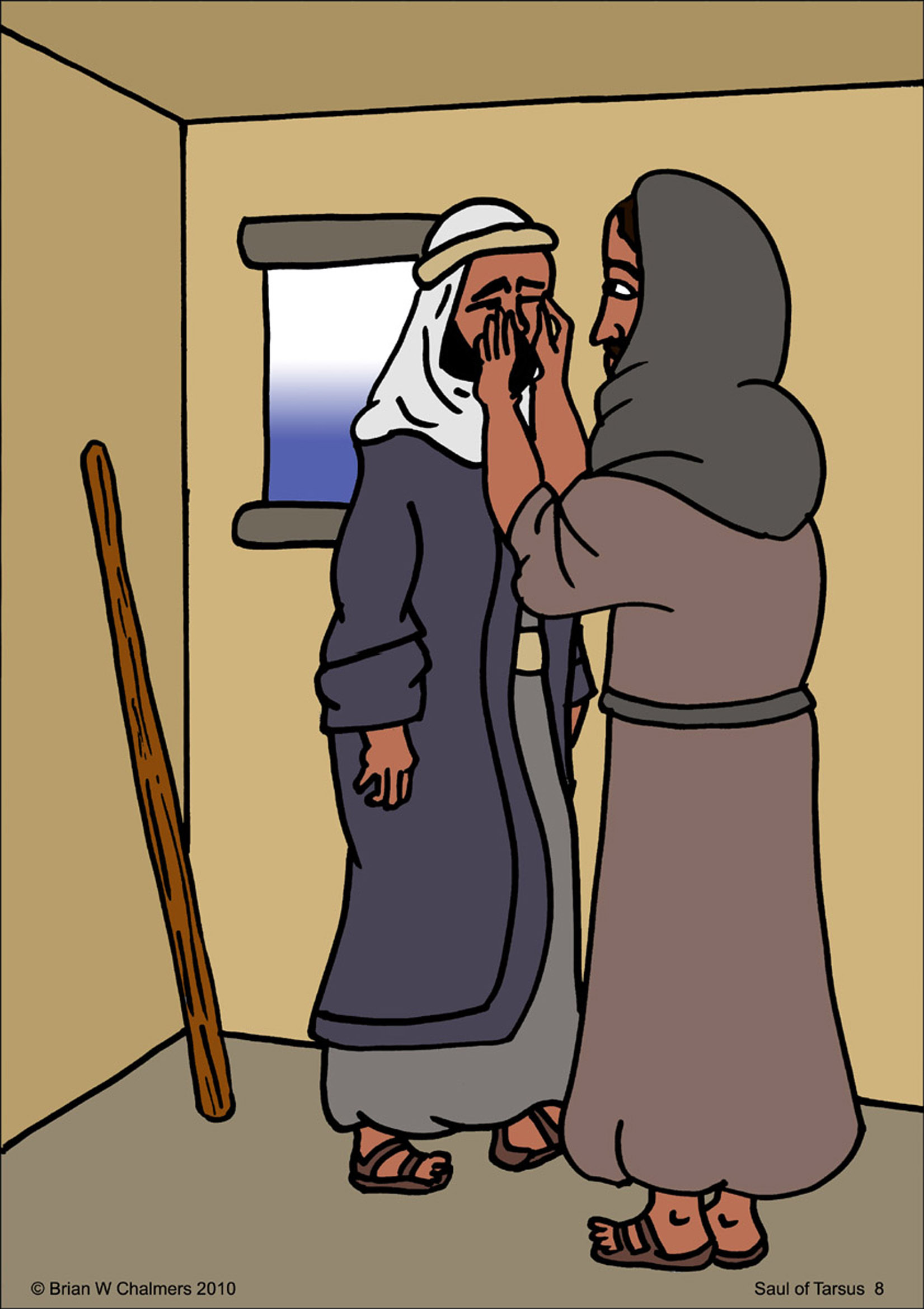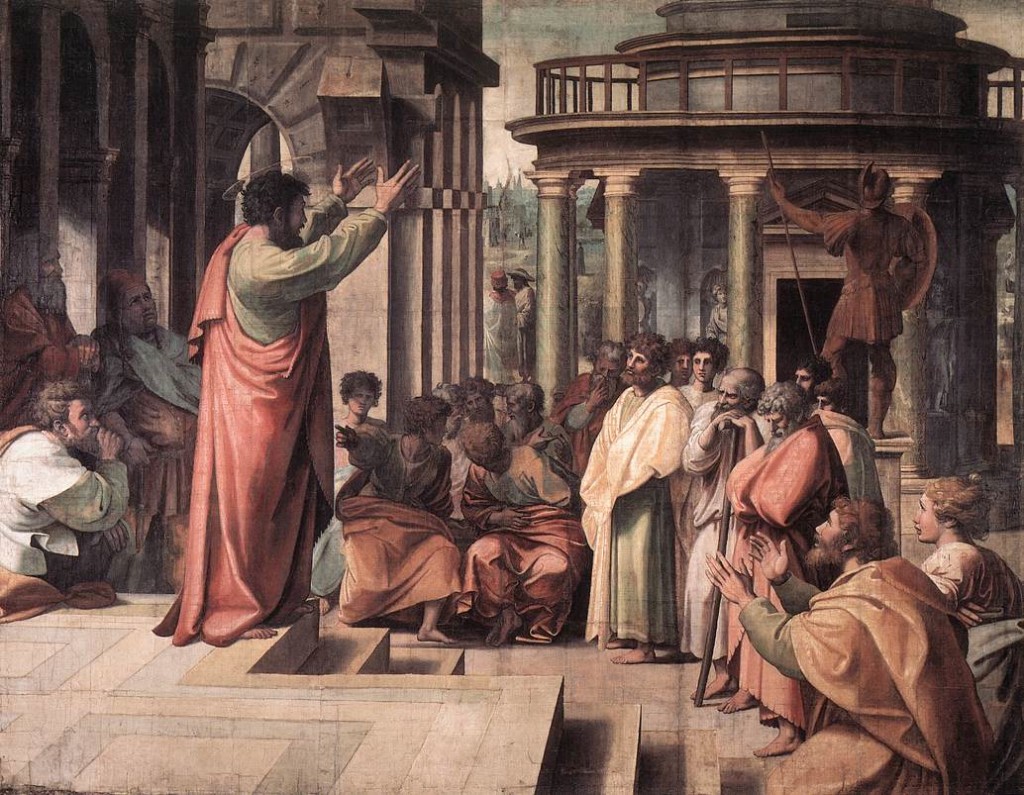Saul was a king whose focus was to murder and imprison as
many Christians as he could. He approved of the execution of the first Christian
martyr, Stephen, in Acts 8. After Stephen’s execution, “Saul was ravaging the
church, and entering house after house, he dragged off men and women and committed
them to prison (Acts 8:3 ESV).” After
getting letters, he found out there were more Christians in Damascus that were
friends and brothers of the people he had already in prison. He decided to go
there and bring them in bonds to Jerusalem to be punished (Acts 22:5).” On his
way to Damascus though, Saul said “a great light from heaven suddenly shone
around me (Acts 22:6 ESV).”
 “And I fell to the ground and heard a voice saying to me, ‘Saul,
Saul, why are you persecuting me?’ And I answered, ‘Who are you, Lord?’ And he
said to me, ‘I am Jesus of Nazareth, whom you are persecuting.’ Now those who
were with me saw the light but did not understand the voice of the one who was
speaking to me. And I said, ‘What shall I do Lord?’ And the Lord said to me, ‘Rise,
and go into Damascus, and there you will be told all that is appointed for you
to do. And since I could not see because of the brightness of that light, I was
led by the hand of those who were with me, and came into Damascus."
“And I fell to the ground and heard a voice saying to me, ‘Saul,
Saul, why are you persecuting me?’ And I answered, ‘Who are you, Lord?’ And he
said to me, ‘I am Jesus of Nazareth, whom you are persecuting.’ Now those who
were with me saw the light but did not understand the voice of the one who was
speaking to me. And I said, ‘What shall I do Lord?’ And the Lord said to me, ‘Rise,
and go into Damascus, and there you will be told all that is appointed for you
to do. And since I could not see because of the brightness of that light, I was
led by the hand of those who were with me, and came into Damascus."
 “And I fell to the ground and heard a voice saying to me, ‘Saul,
Saul, why are you persecuting me?’ And I answered, ‘Who are you, Lord?’ And he
said to me, ‘I am Jesus of Nazareth, whom you are persecuting.’ Now those who
were with me saw the light but did not understand the voice of the one who was
speaking to me. And I said, ‘What shall I do Lord?’ And the Lord said to me, ‘Rise,
and go into Damascus, and there you will be told all that is appointed for you
to do. And since I could not see because of the brightness of that light, I was
led by the hand of those who were with me, and came into Damascus."
“And I fell to the ground and heard a voice saying to me, ‘Saul,
Saul, why are you persecuting me?’ And I answered, ‘Who are you, Lord?’ And he
said to me, ‘I am Jesus of Nazareth, whom you are persecuting.’ Now those who
were with me saw the light but did not understand the voice of the one who was
speaking to me. And I said, ‘What shall I do Lord?’ And the Lord said to me, ‘Rise,
and go into Damascus, and there you will be told all that is appointed for you
to do. And since I could not see because of the brightness of that light, I was
led by the hand of those who were with me, and came into Damascus."Acts 22:6-11
That’s when Saul’s whole life changed.
 Saul is given his sight back after a reluctant Ananias, who
had heard evil things about Saul, lays hands on him with instruction from the
Lord. Many people think that God changed Saul’s name from Saul to
Paul but there is no scripture evidence of that. In Acts 13:9, it says “Saul,
who was also called Paul.” Saul means 'asked or prayed for', and Paul meanslittle or small. Paul would certainly agree with becoming less or smaller soChrist could become greater. It is a meek humble name, in its' meaning, whichare traits God likes.
Saul is given his sight back after a reluctant Ananias, who
had heard evil things about Saul, lays hands on him with instruction from the
Lord. Many people think that God changed Saul’s name from Saul to
Paul but there is no scripture evidence of that. In Acts 13:9, it says “Saul,
who was also called Paul.” Saul means 'asked or prayed for', and Paul meanslittle or small. Paul would certainly agree with becoming less or smaller soChrist could become greater. It is a meek humble name, in its' meaning, whichare traits God likes.
Paul wrote 13 of the 27 books in the New Testament. Nine of
Paul’s letters, (Romans, 1 Corinthians, 2 Corinthians, Galatians, Ephesians, Philippians,
Colossians, 1 Thessalonians and 2 Thessalonians), were addressed to local
churches in certain areas of the Roman empire. On the whole, these epistles
tend to deal with three general issues:
They are often called the “Pauline Epistles.” Unlike the
Gospels and Acts, the Pauline epistles hardly contain any narrative.

